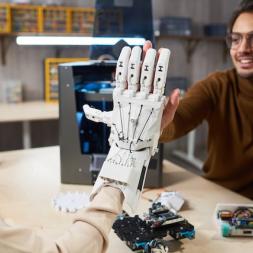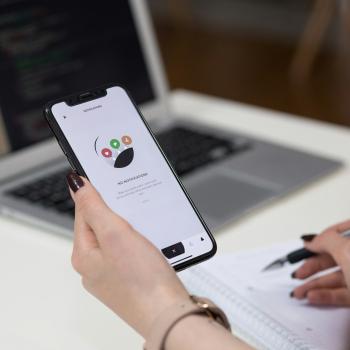
Educational Robotics and Coding: Tools and Strategies for the Classroom of the Future
This 5-day course empowers teachers to bring the exciting world of robotics and coding into their classrooms. Participants will gain a solid understanding of fundamental concepts, explore popular educational robotics kits and visual programming languages, and learn practical methods to integrate these technologies across various subjects
Description
Each participants can fill the registration form at the followinglink: https://forms.gle/zZaf3kbYGr8GJwMt6
Day 1:
- Introduction to Educational Robotics: Benefits, applications, overview of robotics kits.
- Practical Workshop: Building and programming a simple robot.
- Discussion: Reflecting on the learning potential of robotics.
Day 2:
- Introduction to Coding: Fundamental concepts, visual programming languages (Scratch, Blockly).
- Unplugged Coding: Activities for teaching computational thinking without computers.
- Practical Workshop: Creating interactive stories and simple games with Scratch.
- Project Presentations and Feedback.
Day 3:
- Robotics and Coding for STEM: Examples of activities for mathematics and science.
- Practical Workshop: Designing and implementing an interdisciplinary project.
Day 4:
- Robotics and Coding for Humanities and the Arts: Exploring creative applications.
- Round Table: Sharing ideas, projects, and resources with other teachers.
- Showcase: Examples of best practices from European schools.
Day 5:
- Assessment: Test on acquired knowledge and individual project presentation.
- Final Discussion: Reflections, feedback, and future perspectives.
- Awarding of Certificates and Networking.
Additional Notes:
- The course can be tailored to participants' needs.
- Online follow-up sessions are available.
- The course is designed for primary and lower secondary school teachers across Europe.
Learning objectives
Overall Goal:
Empower teachers to effectively integrate robotics and coding into their classrooms, fostering 21st-century skills in their students and preparing them for the digital age.
Specific Learning Objectives:
By the end of this course, participants will be able to:
Knowledge and Understanding:
- Robotics Fundamentals:
- Define key robotics concepts (e.g., robots, sensors, actuators, programming).
- Explain the history and evolution of educational robotics.
- Articulate the benefits of using robotics in education.
- Identify various types of educational robots and their features.
- Coding Fundamentals:
- Describe the basic principles of coding (e.g., algorithms, sequences, loops, conditions).
- Differentiate between visual and text-based programming languages.
- Understand the concept of computational thinking and its importance.
- Recognize the benefits of using visual programming languages like Scratch and Blockly in education.
Skills and Application:
- Robotics Skills:
- Build and assemble robots using popular educational kits.
- Program robots to perform basic tasks (e.g., movement, sensing, interaction).
- Troubleshoot common problems and errors in robot construction and programming.
- Design and implement basic robotic projects aligned with curriculum goals.
- Coding Skills:
- Create interactive stories, games, and animations using visual programming languages.
- Write simple programs to control robots and other devices.
- Apply coding concepts to solve problems and express creativity.
- Debug and refine code to improve its functionality.
- Pedagogical Skills:
- Integrate robotics and coding into various subjects across the curriculum.
- Develop lesson plans and activities that incorporate robotics and coding.
- Adapt existing educational resources to include robotics and coding elements.
- Facilitate collaborative learning and project-based activities in the classroom.
- Assess student learning and provide constructive feedback on robotics and coding projects.
Methodology & assessment
The course is of a practical, dynamic nature enabling participants to learn confidently and offering practical exercises to fully integrate techniques and strategies.
-Active methodologies
-Role playing
-Simulations
-New technologies
All our training courses are in English language, but we can provide linguistic support in French, Bulgarian, Turkish, Spanish, Romanian, Portuguese
Materials, digital tools & other learning resources
Infol Education's Erasmus+ courses combine theoretical and practical learning. Participants get course-specific materials like handouts and presentations for foundational knowledge. The training focuses on hands-on application through workshops and group projects, and also includes company and school's visits, expert meetings, and case studies to provide real-world experience.
Certification details
Certificate of attendance
Europass mobility certificate
Pricing, packages and other information
-
Price:400Euro
-
Course package content:
We can assist you:
Accommodation: We can help you find suitable and comfortable accommodation options near the training venue, whether you prefer hotels, guesthouses, or apartments.
Cultural Tours: Immerse yourself in the local culture with our curated tours and excursions. Explore historical sites, museums, and hidden gems, and gain a deeper understanding of your surroundings.
Transportation: We can arrange convenient and reliable transportation options for your arrival and departure
-
Additional information:Description of the services and activities included in the course package (such as accommodation, meals, transport) or available at extra cost.
-
Cancellation & changes:
We understand that plans can change. That's why we offer flexible options for cancellations and changes, while also providing clarity on our policy in case of unforeseen circumstances.
Participant-Initiated Changes and Cancellations:
Changes: We are happy to accommodate changes to your registration, such as transferring to a different course date or modifying your accommodation choices, whenever possible. Please contact us as soon as possible with your request and we will do our best to assist you
-
Additional information:The options and conditions for change and cancellation, and the policy in case of unforeseen circumstances (force majeure).
Додатне информације
-
Језик:English
-
Target audience ISCED:Primary education (ISCED 1)Lower secondary education (ISCED 2)Upper secondary education (ISCED 3)
-
Target audience type:TeacherICT Coordinator
-
Learning time:20-25 hours
Upcoming sessions
Past sessions
More courses by this organiser

Cultivating a Green Generation: Empowering Educators for Environmental Action



